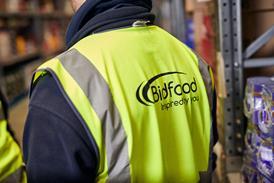Close menu
- Home
- Retail & Wholesale
-
Products & Suppliers
- Back to parent navigation item
- Products & Suppliers
-
Product Categories:
- Back to parent navigation item
- Product Categories:
- Alcoholic drinks
- Bakery
- Cereals & breakfast
- Cheese
- Chicken & poultry
- Chocolate
- Confectionery
- Crisps, nuts & snacks
- Dairy
- Fish
- Fresh produce
- Frozen
- Household
- Meat
- Own Label
- Sauces & condiments
- Seasonal
- Soft drinks
- Vaping
- Vegan & plant-based
- World foods
- Suppliers
- People
- Reports & Data
-
Topics A-Z
- Back to parent navigation item
- Topics A-Z
-
Popular topics:
- Back to parent navigation item
- Popular topics:
- Cost of living crisis
- Crime
- Deposit Return Schemes
- Finance
- Government & Regulation
- Health
- Inflation
- Loyalty
- Marketing
- Mergers & Acquisitions
- New Product Development
- Sourcing
- Supply chain
- Sustainability & environment
- Technology
- Ultra Processed Foods
- Vaping
- A-Z all topics
- Content by type:
-
Events
- Back to parent navigation item
- Events
- The Grocer Gold Awards
- LIVE: Retail Week x The Grocer
- The Grocer New Product & Packaging Awards
- The Convenience Awards
- The Convenience Conference
- World Agri-Tech Innovation Summit
- Food & Drink Expo
- Farm Shop & Deli Product Awards
- Farm Shop & Deli Retailer Awards
- Webinars
- Ask iA (beta)
- Subscribe now
Kellogg’s takes government to court over HFSS promotions ban
By Ian Quinn2022-04-27T10:24:00

Kellogg’s claims the nutrient profiling model (NPM) used to calculate the nutritional value of cereals was not fit for purpose
Already have an account? Sign in here
Already have an account? Sign in here





